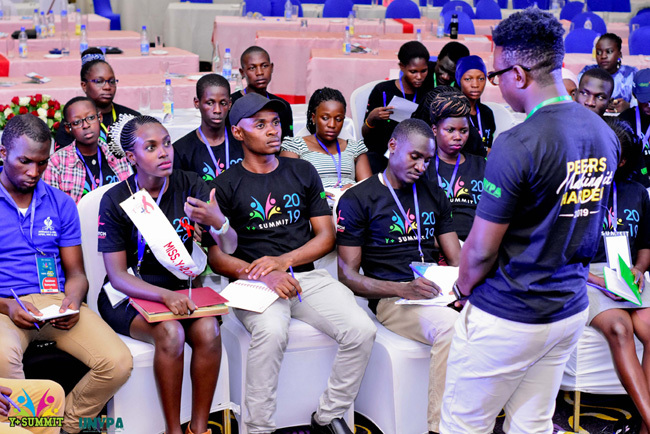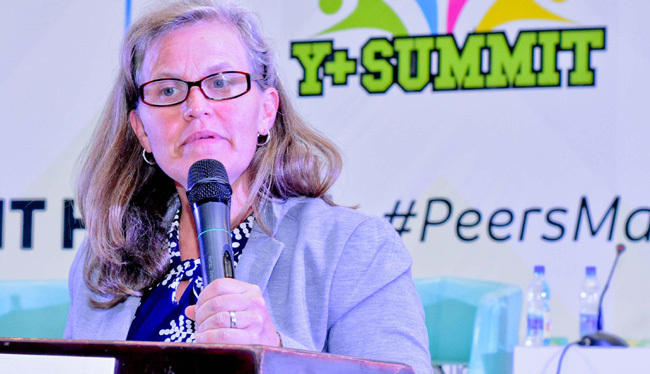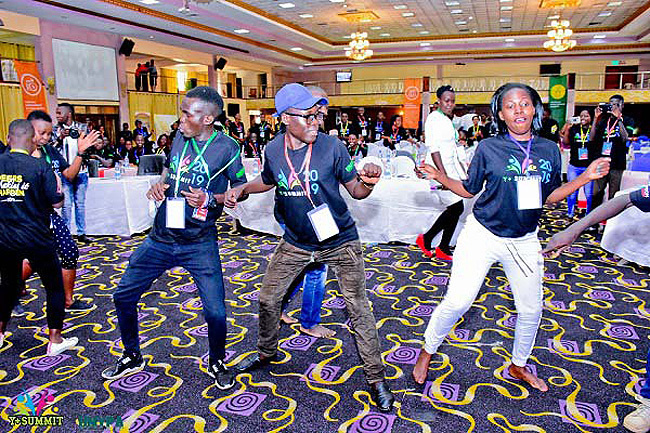'We need AIDS Trust Fund more than yesterday'
“There is nothing stopping the ATF from being implemented except the finance ministry," says health minister Dr. Jane Ruth Aceng.
FIGHTING HIV
KAMPALA - Health minister Dr. Jane Ruth Aceng has rallied young people living with HIV to petition government to operationalise the AIDS Trust Fund (ATF), saying it is overdue.
The HIV and AIDS Prevention and Control Act, signed into law in 2014, provides for the creation of an AIDS Trust Fund, through which government should levy taxes on alcohol and soft drinks to fund the fight against HIV and AIDS.
"There is nothing stopping the ATF from being implemented except the finance ministry," said the minister.
"Everything concerning the ATF, including regulation, was completed. I have done my part. We need ATF more than yesterday if we are to continue running our health services."
She also hailed the US for supporting Uganda in the fight against HIV and AIDS over the last three decades.
"The United States government has boosted HIV prevention and treatment assistance to Uganda, especially through the US President's Emergency Plan for AIDS Relief (PEPFAR) and many other HIV interventions. We thank the US for that."
The minister made these remarks recently at the conclusion of a three-day summit for young people living with HIV, organized by Uganda Network of Young People Living with HIV/AIDS (UNYPA) in Kampala. The minister said majority of the HIV and AIDS programmes have been supported by the US government.
It is here that she urged young people living with HIV to push for the AIDS Trust Fund.
 Youths attending the Y+ Summit in Kampala. (Credit: UNYPA)
Youths attending the Y+ Summit in Kampala. (Credit: UNYPA)
The object of the fund, according to the law, is to secure a predictable and sustainable means of procuring goods and services for HIV and AIDS counseling, testing and treatment (ARVs and test kits). It is seen as a way of reversing the current trend of donor reliance to address the funding gaps in the HIV and AIDS fight.
Two percent (2%) of collections from taxes on spirits, soft beers and bottled water is to finance the fund, which will amount to slightly over $2m (about sh7.4b) per year. A total of $2.4m (about sh8.9b) is expected to be raised from the levies alone as initial money for the fund.
But there growing general concern that it has taken long to have the fund operationalised.
During the recent summit, Dr. Lisa Nelson, the director of Centre for Disease Control, Dr. Nelson Musoba, the director general of Uganda AIDS Commission and Dr. Karusa Kiragu, the UNAIDS country director were in attended.
Henk Bakker, the Dutch ambassador to Uganda, was also there.
Representing Ambassador Deborah Malac (US), Dr. Lisa said the US has pledged over $408 million (about sh1.5 trillion) this year to support Ugandan programmes that provide HIV prevention, care and treatment services to those affected by HIV and AIDS.
"We are grateful to have worked in successful partnership with Uganda. Together, we have achieved remarkable results, approaching the 95-95-95 global target, reducing new infections and promoting a more sustainable HIV response," she said.
 Dr. Lisa represented US Ambassador Deborah Malac. (Credit: UNYPA)
Dr. Lisa represented US Ambassador Deborah Malac. (Credit: UNYPA)
One of PEPFAR's most recent and successful programmes with young people, she said, is the ‘Determined Resilient Empowered AIDS-free, Mentored and Safe' (DREAMS), a partnership between the US government and several private sector and non-profit organisations.
The programme targets girls aged 10 - 24 in 15 districts in Uganda and that of the eight districts evaluated so far, seven registered a 25% reduction in new HIV infections among girls over a period of two years. "This is a remarkable achievement," said Dr. Lisa.
She thanked UNYPA for their efforts in the fight against HIV and AIDS by training communities in health and human rights, addressing stigma and discrimination, ensuring prevention, care and treatment in young people and co-ordinating advocacy efforts targeting the youth.
The Y+ summit is held every year, and runs for three days. It is seen as a collaborative meeting that seeks to give young people an authentic voice, create a dedicated space and empower young people living with HIV with technical capacity building.
The summit is also a peer-to-peer exchange that brings together ambassadors of change across Uganda and stakeholders to discuss and devise actions to the emerging issues or challenges that affect the health and wellbeing of the young people living with HIV at national level.
This was the third Y+ summit to be organized by UNYPA and it attracted over three hundred young people aged 15 to 25 years from across the country, majority of them being HIV positive.
Uganda is one of the countries in the world where HIV prevalence is rising despite various interventions being implemented. And Nicholas Niwagaba, the executive director UNYPA, regrets this.
According to the health ministry, around 1.3 million Ugandans are living with HIV, out of which 156,569 are young people and adolescents aged 12-24. Of these young people, an estimated 570 get infected with HIV on a weekly basis, when they clock 15 years.
What happened during the summit
 Youths entertained guests during the summit. (Credit: UNYPA)
Youths entertained guests during the summit. (Credit: UNYPA)
Across the three days of the summit, participants were empowered to engage and take an active role in advocacy through building their advocacy skills, breaking the barriers for engagement, building movements, mentorship, exploring opportunities for adult partnerships and building their capacity to be able to voice their rights.
They were also equipped with basic economic and entrepreneurship knowledge through financial literacy sessions and setting realistic financial goals as young people. This followed evidence showing the relationship between poverty and HIV with its diverse effect to adherence, retention to care and HIV prevention with young people living with HIV.
And concerning the role of peers in service delivery, it was evident that young people living with HIV play an informal role as peer providers that promote resilience, link peers to health systems for quality services, follow up their peers and provide peer support through sharing knowledge and experience.